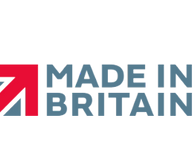Collagen has become a major focus in health and beauty circles, and for good reason. This structural protein is the most abundant in the human body, providing vital support to the skin, joints, bones and connective tissues. As we age, our natural collagen levels start to drop, which is why many people look to supplements to help maintain a youthful appearance and keep their joints feeling strong and mobile.
What Is Collagen and Why Do We Need It?
Collagen is a fibrous protein that acts like scaffolding in the body. It gives skin its firmness and elasticity, supports the structure of joints and bones, and helps maintain healthy connective tissues. Our bodies produce collagen naturally, but production starts to decline around the age of 25. From there, we lose around 1 percent each year, and the effects become more noticeable as time goes on.
Sun exposure, stress, smoking, poor nutrition and environmental toxins all speed up this decline. That’s why collagen supplements have become so popular, especially hydrolysed collagen peptides, which are easier for the body to absorb.
Bovine and Marine Collagen – What’s the Difference
|
Feature |
Bovine Collagen |
Marine Collagen |
|
Source |
Derived from cowhide and bones |
Extracted from fish skin and scales |
|
Type of Collagen |
Primarily Type I and III |
Mostly Type I |
|
Absorption |
Slower than marine, but still effective |
Smaller peptides make it faster to absorb |
|
Best For |
Joints, bones, gut lining and skin structure |
Skin hydration, elasticity and hair health |
|
Environmental Impact |
Linked to livestock production |
Often uses by-products from the fishing industry |
Bovine collagen contains both Type I and Type III, which makes it a good all-rounder. Type III supports internal organs and blood vessels, while Type I is crucial for bones and skin.
Marine collagen is lighter, more bioavailable (easier to absorb), and made up almost entirely of Type I collagen. This makes it particularly useful for skin, as Type I is the main collagen found in the dermis.
Bovine vs Marine Collagen – Which One Should You Choose
Here’s a quick checklist to help you decide what might suit you best:
Choose bovine collagen if you
-
Want to support joint or gut health
-
Are looking for a more affordable option
-
Need a supplement that includes Type III collagen
-
Don’t have dietary restrictions related to animal products
Choose marine collagen if you
-
Are mainly concerned with skin hydration and anti-ageing
-
Want a faster-absorbing option
-
Follow a pescatarian diet
-
Prefer supplements made from fish by-products
Consider both types if you
-
Want full support for both skin and joints
-
Are dealing with multiple concerns such as ageing and inflammation
-
Prefer to combine the amino acid benefits of both sources
Collagen and Scientific Evidence – What the Research Shows for Skin and Joints
Scientific studies provide a clear picture of how collagen supplements can support the body. Both bovine and marine collagen are typically hydrolysed into small peptides, making them easier to absorb and use.
Marine collagen, which is rich in Type I, has shown excellent results for skin. In clinical studies, participants taking marine collagen daily experienced improved skin elasticity and hydration. A well-known study published in Skin Pharmacology and Physiology found that women who took marine collagen for 12 weeks had noticeably firmer, more hydrated skin with fewer wrinkles.
Bovine collagen brings broader benefits because it contains Type III as well as Type I. This makes it a strong choice for joint health and mobility. A 6 month study on hydrolysed collagen in Current Medical Research and Opinion and a systematic review in Orthopedic Reviews have found that bovine collagen can help reduce joint pain and support tissue regeneration, especially in people with arthritis or those who exercise frequently.
The conclusion is simple. Marine collagen is particularly effective for skin, while bovine collagen supports a wider range of body systems, including joints, bones and the gut.
Nutrients That Enhance Collagen’s Effects
Collagen doesn’t work in isolation. Its effects are often more noticeable when supported by other nutrients that contribute to skin health, tissue repair, and the body’s ability to synthesise collagen naturally.
Here are the key nutrients to look for in a collagen-boosting supplement or routine:
-
Vitamin C – Essential for collagen synthesis and helps protect against oxidative damage that can degrade collagen fibres.
-
Zinc – Plays a key role in tissue repair and helps stabilise the structure of collagen proteins.
-
Copper – Required for the formation of stable collagen and elastin cross-links, supporting skin strength and elasticity.
-
Hyaluronic Acid – Enhances moisture retention in the skin and supports plumpness, complementing collagen's structural benefits.
-
Silica – Strengthens skin, hair, and nails, and helps activate enzymes involved in collagen production.
-
Amino acids (glycine, proline, hydroxyproline) – Fundamental building blocks for collagen formation, naturally found in hydrolysed collagen.
-
Vitamin E – A fat-soluble antioxidant that protects skin cells from oxidative stress, which can break down collagen and contribute to ageing.
-
Vitamin B2 (Riboflavin) – Supports normal skin function and contributes to the maintenance of healthy connective tissue, aiding in collagen stability.
-
Biotin (Vitamin B7) – Promotes healthy hair and skin, and contributes to the maintenance of mucous membranes that benefit from collagen's structural support.
-
Iodine – Supports normal thyroid function, which is closely linked to skin health and metabolism. Adequate iodine may indirectly benefit collagen maintenance by supporting overall hormonal balance.
Supplements that include these in addition to collagen peptides offer better all-round results. VitaBright Marine Collagen is formulated with all these nutrients to deliver amazing results!
The Benefits of Combining Bovine and Marine Collagen
Rather than choosing between marine and bovine collagen, many people find they get the best results by using both. This approach delivers a broader range of amino acids and targets more systems in the body.
Marine collagen helps to hydrate and smooth the skin quickly, while bovine collagen provides lasting support to joints, ligaments and the digestive tract. When taken together, they complement each other beautifully. You’ll often see this combination in premium collagen blends designed for full-body wellness.
By covering all the bases, a combined approach is especially useful for anyone dealing with ageing, stress, inflammation or injury. It’s a way to support skin, joints and internal tissues all at once.
Final Thoughts
Collagen is one of the most valuable supplements for anyone looking to support their skin, joints and connective tissues as they age. Whether you choose marine, bovine, or a combination of both, the key is to find a form that suits your needs and lifestyle.
Paired with the right nutrients and a healthy routine, collagen can play a powerful role in keeping your body strong and resilient from the inside out.
Sources and Further Reading
Marine Collagen and Skin Health
1. Proksch, E., Segger, D., Degwert, J., Schunck, M., Zague, V., & Oesser, S. (2014). Oral supplementation of specific collagen peptides has beneficial effects on human skin physiology: a double-blind, placebo-controlled study. Skin Pharmacology and Physiology, 27(1), 47–55. https://doi.org/10.1159/000351376
2. Asserin, J., Lati, E., Shioya, T., & Prawitt, J. (2015). The effect of oral collagen peptide supplementation on skin moisture and the dermal collagen network: evidence from an ex vivo model and randomized, placebo-controlled clinical trials. Journal of Cosmetic Dermatology, 14(4), 291–301. https://doi.org/10.1111/jocd.12174
Bovine Collagen and Joint Health
3. Clark, K. L., Sebastianelli, W., Flechsenhar, K. R., Aukermann, D. F., Meza, F., Millard, R. L., ... & Albert, A. (2008). 24-Week study on the use of collagen hydrolysate as a dietary supplement in athletes with activity-related joint pain. Current Medical Research and Opinion, 24(5), 1485–1496. https://doi.org/10.1185/030079908X291967
4. Paula Janzen Brueckheimer, BS, Tales Costa Silva, BS, Leonardo Rodrigues, BS, Vivian Zague, PhD, Carlos Isaia Filho, M.D. February 18, 2025. The Effects of Type I Collagen Hydrolysate Supplementation on Bones, Muscles, and Joints: A Systematic Review. Orthopedic Reviews. https://orthopedicreviews.openmedicalpublishing.org/article/129086









